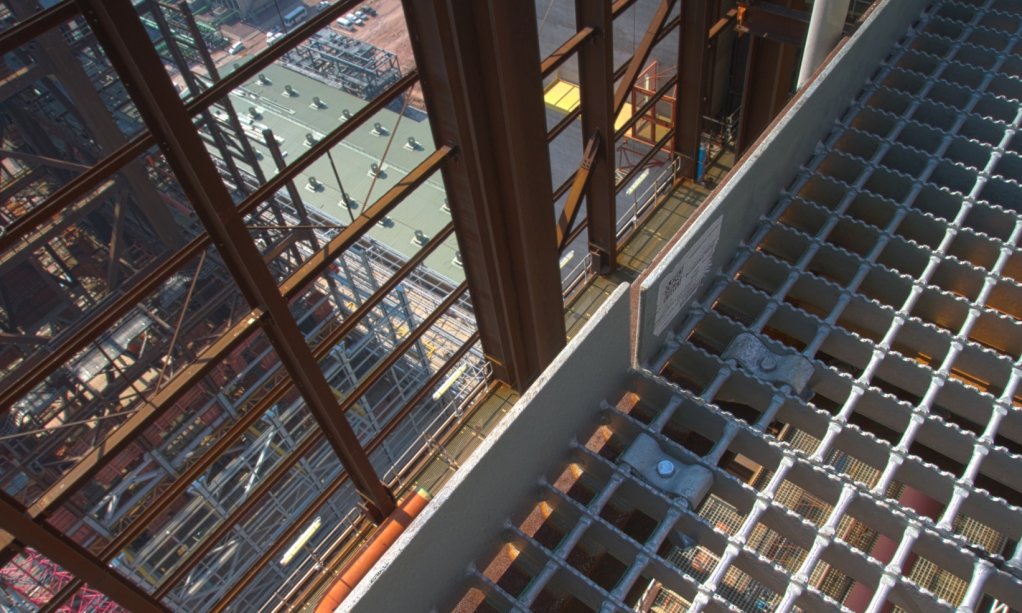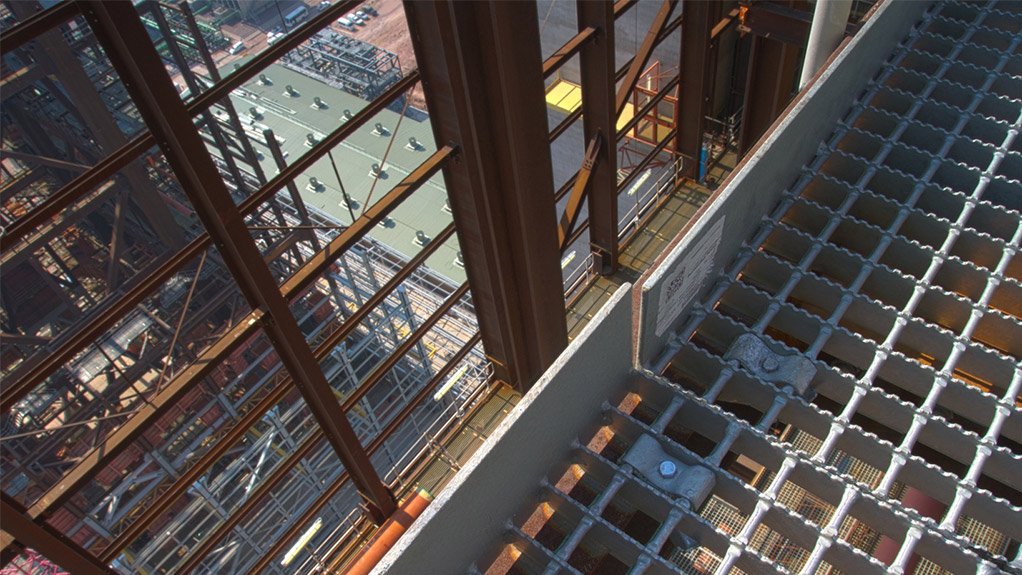The demand for steel in South Africa’s construction and cladding sector will continue to increase, owing to its myriad of applications and ease of installation, says steel gratings, stair treads, pressed floors and safety handrails manufacturer Vital Engineering technical director Glen Pringle.
“If there are no large infrastructure projects requiring steel, there will always be other requirements, such as in the security sector, as well as for other formal and informal sectors such as roofing, warehousing, reinforcing, fencing repair and maintenance.
However, steel plays an important role in the construction of infrastructural projects, he advises.
“It is simply a material that should never become outdated, and without which no infrastructural building projects can be implemented,” Pringle comments, adding that infrastructural projects rely heavily on the use of steel, and would not be able to meet design specifications without it.
In terms of advantages, Pringle highlights that steel is primarily used for its loadbearing strength and versatility of applications, while being a cost-effective and recycleable material.
Even though the South African mining, steel and manufacturing sectors are under pressure, Pringle notes that Vital Engineering, which supplies handrailings, gratings, pressed floors and other products in steel, as well as a variety of other materials such as glass-reinforced fibre, is using these conditions as an opportunity to diversify its product lines and expand its footprint into sub-Saharan Africa, where many positive developments and projects are occurring, compared with South Africa.
The roles of the three key stakeholders in local industry – government, the primary steel producer/mill and the suppliers – are being pressurised to meet the changing markets and environments, he mentions.
In particular, a lack of investment in major infrastructure, as well as local and foreign private investment, has resulted in a severe decline in the local downstream steel sector.
The challenges in the sector comprise the low-growth economy; political and policy uncertainty, and changing legal requirements; a dwindling rand; and the steel industry’s lack of competitiveness locally and abroad.
These challenges, Pringle concludes, are further exacerbated by a lack of interparticipation among the various stakeholders in the steel industry.
Other Projects
Despite operating in a somewhat lacklustre industry, Vital Engineering has, in the interim, supplied products to a North West-based coal mine, which feeds a power station.
These products include grating, handrails, expanded metal and glass-reinforced plastic (GRP) grating.
This project started in October last year.
The company also supplies to a KwaZulu-Natal-based client in the pulp and paper industry, which Pringle says is upgrading and streamlining its facilities.
“We supplied various items, including stainless steel handrails, GRP products, galvanised steel gratings and stainless steel gratings,” he elaborates.
Additionally, Vital Engineering supplied various products to wastewater treatment plants, in Southern Africa. Products delivered included GRP gratings, galvanised steel handrails and stainless-steel handrails. These projects are ongoing and will in all likelihood continue as water becomes a scarcer commodity, Pringle notes.
“There are really interesting developments happening throughout Africa. From copper mines in Zambia to which Vital Engineering is supplying gratings, handrails, expanded metal and GRP products, to refineries and oil and gas projects in East and West Africa,” Pringle states.
Edited by: Zandile Mavuso
Creamer Media Senior Deputy Editor: Features
EMAIL THIS ARTICLE SAVE THIS ARTICLE
ARTICLE ENQUIRY
To subscribe email subscriptions@creamermedia.co.za or click here
To advertise email advertising@creamermedia.co.za or click here















